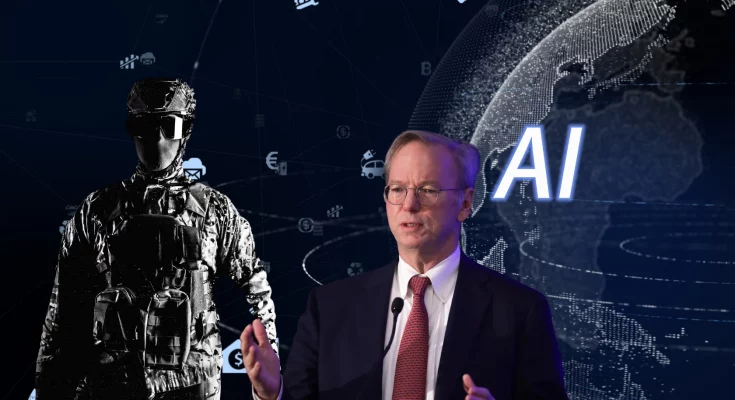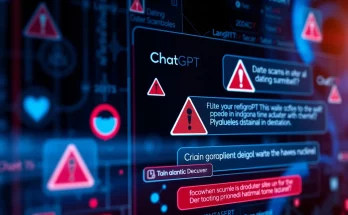Artificial Intelligence (AI) has rapidly transformed the technological landscape, raising both excitement and concern among industry leaders, governments, and the public. As AI continues to evolve, questions surrounding its potential misuse and the need for regulation are at the forefront of discussions. Former Google CEO Eric Schmidt recently voiced his concerns regarding the dangers posed by AI, particularly in the hands of “rogue states” and terrorist organizations. This article explores the delicate balance between fostering innovation and ensuring safety through appropriate oversight.
The Dangers of Misused AI
Eric Schmidt emphasized that while many discussions about AI focus on beneficial uses, the real fears lie in its potential for extreme risk. In an interview, he stated:
“The real fears that I have are not the ones that most people talk about AI – I talk about extreme risk.”
Schmidt pointed out that countries like North Korea, Iran, and Russia could potentially exploit AI technology to develop destructive biological weapons. The ability to misuse AI systems threatens public safety and global security. He urged that:
- Governments must exert oversight over private tech companies
- Over-regulation, however, could hinder innovation
Thus, it becomes imperative to find a middle ground that fosters technological growth while protecting innocent lives.
The Role of Government Regulation
Schmidt advocated for a balanced approach to AI regulation, expressing that:
“It’s really important that governments understand what we’re doing and keep their eye on us.”
His comments coincide with recent restrictions by former US President Joe Biden on microchip exports, aiming to control the advancement of AI research among adversaries. This regulation serves as a precautionary measure to ensure that powerful technologies do not fall into the wrong hands.
However, Schmidt also recognized the potential pitfalls of too much regulation, citing Europe’s challenges. He mentioned:
“The AI revolution…is not going to be invented in Europe.”
This statement underscores the necessity for a regulatory framework that encourages innovation rather than stifling it.
AI and the Risk of Terrorism
During his interview, Schmidt expressed specific worries about the possibility of an “Osama bin Laden scenario,” where nefarious individuals leverage modern technology for malevolent purposes. He warned:
“This technology is fast enough for them to adopt that they could misuse it and do real harm.”
These concerns are not merely speculative; they highlight a critical need for precautions against the potential for AI to enhance the effectiveness of terrorist operations.
Protecting the Youth: Social Media and Smartphone Regulations
Beyond international security, Schmidt is also concerned about the impact of technology on children. Given his role in the development of the Android operating system, he now supports initiatives aimed at limiting smartphone usage among children. He argued that:
“The situation with children is particularly disturbing to me.”
With growing evidence of smartphones’ addictive nature, Schmidt advocates for:
- Age restrictions on social media use
- Initiatives to keep phones out of schools
Australia’s recent legislative actions banning social media for kids under 16 reflect a growing global consensus on this issue, aligning with Schmidt’s perspectives on protecting younger generations from technology’s detrimental effects.
Ethical Considerations in the Age of AI
As the landscape of technology continues to evolve, the ethical considerations surrounding AI use are becoming increasingly relevant. Schmidt remarked on the lack of foresight from tech leaders in understanding AI’s implications, illustrating the disconnect between technological development and ethical considerations.
He noted:
“My experience with the tech leaders is that they do have an understanding of the impact they’re having, but they might make a different values judgment than the government would make.”
This highlights the importance of dialogue between tech companies and regulatory bodies to ensure a unified approach to the ethical deployment of AI technologies.
The Future of AI: Navigating Challenges and Opportunities
As the AI sector rapidly advances, navigating the challenges that come with it is crucial for the future. With leaders like Schmidt emphasizing the delicate balance between innovation and safety, stakeholders must work collaboratively to prevent misuse while still promoting the transformative potential of AI.
Key considerations include:
- Establishing clear guidelines for responsible AI development
- Fostering international cooperation on AI regulations
- Encouraging ethical AI practices among tech companies
The stakes are high, and the consequences of inaction could have severe ramifications for global safety. As Schmidt aptly put it:
“The truth is that AI and the future is largely going to be built by private companies.”
Governments must play their part, ensuring that regulations encourage growth while keeping the technology out of the hands of those who would exploit it for harm.
Conclusion
The ongoing discussion around AI innovation and regulation is critical not only for technological advancement but also for public safety and ethical standards. As industry leaders and governments continue to navigate this landscape, the challenge remains to foster an environment where innovation can thrive without compromising the well-being of society.
In an era where AI’s potential is both exciting and daunting, it is a collective responsibility to ensure that we harness its power for the greater good—balancing its transformative capabilities against the imperative of safety. With thoughtful oversight and collaboration, a future where AI serves humanity’s best interests becomes attainable.
By actively engaging with these complexities, we can build a more secure, responsible future for the next generation.



